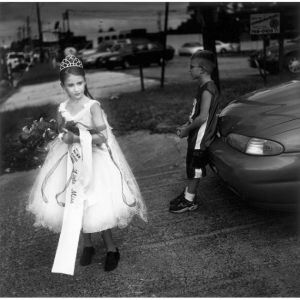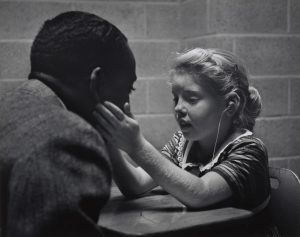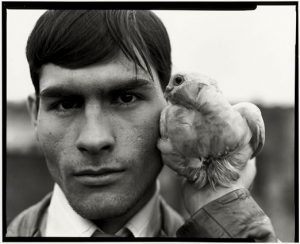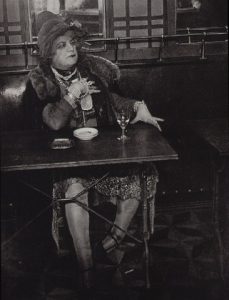The book Theremains of the day presents Stevens as a narrator who has little to no interest in having options about anything other than his job. This can make him boring to readers and can often lead to feelings of frustration while reading. While this might be annoying it was done purposefully on the author’s part. Stevens’s lack of interest in the world around him makes him a tragically frustrating character. He is given chances throughout the story to make changes to his life, and to be something other than his career but he constantly declines, this is the beauty of this novel. This disinterest cost him a life he could have had and by the end of the story he realizes this, and it is even more tragic because there is nothing, he can do to take back the lost years and the lost opportunities. Even more tragic is this missed opportunity is likely linked to traits instilled in him by his father.
When I was reading, I inferred this mindset towards life was in a large part due to his relationship with his father, particularly the admiration Stevens has for his father. His views on his father are similar to the way someone would view their childhood role model. When Stevens thinks of the ideal butler it not the typical heroes of the butler community, he sees as the best but his father. “I realize that if one looks at the matter objectively, one has to concede my father lacked various attributes one may normally expect in a great butler, but those same absent attributes , I would argue are every time those of a superficial and decorative order. ( Ishiguro,34.). He even goes as far as to defend his father against the standards he views as false by society as a whole. This respect of his father is in many ways humanizing for Stevens as it is the same admiration many young children show to their parents however this admiration comes with complications. Like his son, Stephen’s father is also painfully devoted to his job, to the point of putting personal obligations to his family aside. While we do not see direct interactions of Stevens being abandoned as a child because of work or anything that would suggest his father is neglectful we do see a cold outlook between the two of them. This is seen mostly in the fact Stevens through the novel refers to his father as “father “regardless of the context. Giving the impression of a very formal relationship between the two of them. This cold formal relationship between the two of them is especially apparent when Stevens goes to talk to his father about his new limited responsibilities within the house. Stevens has difficultly figuring out how and where he is going to talk to his father saying.
“My difficulty was further compounded by the fact that for some years my father and I had tended- for some reason I have never really fathomed to converse less and less..In the end, I judged the best option to be talk in the privacy of his room, thus giving him the opportunity the ponder his new situation.” ( Ishiguro 63-64).
His worries about his father’s reaction to this new position is a natural worry. As well this it is natural he does not want to have a difficult conversation with his father, as no one wants to have difficult conversations with their parents as it sometimes it will result in a dispute between someone you believe love and who cares for you. What makes Stevens’s reaction different is he does not know how to talk to his father and based on the relationship featured within the book has not know how-to for a while or he ever truly did. Stevens said he does not know what caused the decline in his relationship with his father but it quickly becomes apparent as he enters the room it most likely is based on their shared unwavering devotion to their work. What struck me as a reader when I first read this was the abruptness of the conversion. Stevens tries to have a joking conversation about his father about him being up early but instead, Steven feels discomfort in his father’s presence as he “ looked me up and down rather coldly.” (Ishiguro, 64.)It appears like Steven’s father does not have the time for him or does not understand the friendly nature of the comment. Their personal conversation lasts all of two lines before transitioning to work and the matter at hand. This scene is interesting because it shows Steven‘s father struggling with a social cue his son also struggles with, suggesting it might be a learned trait. Both father and son use work as a crutch to avoid talking about their feelings or opinions on a matter, or if they do not know how to handle a social situation in general. We see this same aversion to social situations in Stevens’s many conversations with Miss. Kenton. Because he lacks the skills or mindset necessary to carry himself in a conversation he losses countless chances with Miss. Kenton and because of this a possible future outside of being a butler.
However, this work standard of work before everything else is so ingrained Steven holds onto it despite his father’s obvious regert on his death bed. Regardless of whether Stepehen acknowledges it at first, we as readers can see the pain in his father tone as he says
“ I hope I’ve been a good father to you…I’m proud of you. A good son.I hope I’ve been a good father to you. I suppose I haven’t.” (Ishiguro 99.)
This is one most personal moments Steven has with his father throughout the text, and because of this it one of the most tragic moments in the novel. At this moment as previously mentioned we see regert for the way he was not the best father he could have been to his son, only grappling with this fact when it is far too late. This is only worsened as Steven’s mind is not on the conversation despite the fact his normally distant father is being personal with him, instead, his mind is on work. It is heartbreaking as we see his father showing regert over the way he raised his son, and clinging to the fact he did not ruin him like he ruined himself. In the end, work wins out as the same work ethic that keeps them from a close relationship draws Steven back to work. Leaving his father to grapple with the fact his son is the same as him. The conversation is particularly tragic as it the last conversation they will have before his death and Steven could not fully appreciate it as his mind was on work.
Overall while I do believe Steven’s nature is in many ways his own making I feel his father is the primary reason for why he is like he is. Steven saw his father as a role model for his work due to his commitment to work and we see Steven share the same commitment regardless of the cost. This of course causes Stephen to miss out on countless opportunities and however he differs from his father in one key way, he realizes it before it is too late. While it is too late to take back his lifetime of years wasted away at his job, Stevens is not dead. Unlike his father is given the chance of not realizing it on his death bed and because of this has the chance of making something of the remaining years of his life.







 e majority of the discussions between characters and the topic of dignity seem to offer Stevens something new every time, a chance to see his acquaintances views and possibly change his, but this sadly does not happen. Stevens views dignity in the light of ones proper role. “that I did not appear in anything less than my full and proper role” (169). He often explains it as if one would remove their clothing in public. The proper role is the clothing one must wear at all times to be of utmost professionalism until they are alone. When Stevens describes his definition of dignity as “rather hard thing to explain in a few words sir, but I suspect it comes down to not removing one’s clothes in public” (10), he is alluding to the need of being proper to have an ounce of dignity.
e majority of the discussions between characters and the topic of dignity seem to offer Stevens something new every time, a chance to see his acquaintances views and possibly change his, but this sadly does not happen. Stevens views dignity in the light of ones proper role. “that I did not appear in anything less than my full and proper role” (169). He often explains it as if one would remove their clothing in public. The proper role is the clothing one must wear at all times to be of utmost professionalism until they are alone. When Stevens describes his definition of dignity as “rather hard thing to explain in a few words sir, but I suspect it comes down to not removing one’s clothes in public” (10), he is alluding to the need of being proper to have an ounce of dignity.